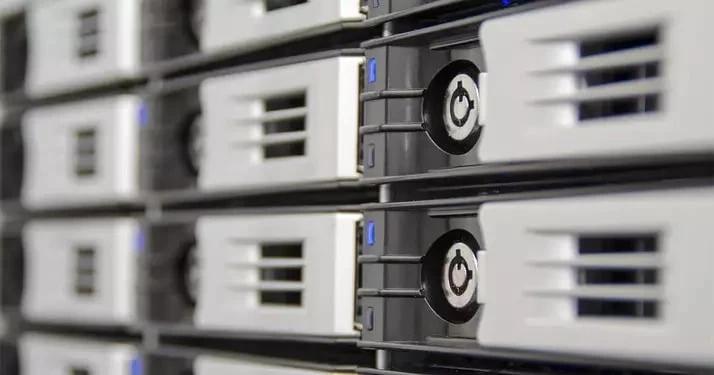In the digital world, data storage is crucial as businesses generate and depend on massive amounts of data. Traditional storage methods such as local hard disk drives and external hard drives are no longer sufficient to cater to the demands and needs of modern-day businesses. This is where Network Attached Storage (NAS) comes in. It is a specialised storage device that enables multiple users to access and share data seamlessly across a network. In this blog post, we will explore the features and benefits of NAS and why businesses today are turning to this technology for their data storage needs.
Scalability
NAS is scalable and can be expanded as your business grows. Unlike traditional storage devices which may require hardware upgrades to meet business needs, NAS systems allow for easy expansion by simply adding more hard drives. This means that small businesses and enterprises can start with a low-capacity NAS and upgrade as their data storage needs increase. Scalability ultimately leads to cost efficiency and flexibility.
Easy Data Management
NAS provides centralised data management where all your data is stored in one location. This eliminates the need for multiple storage devices and makes data management more efficient. With NAS, users can effortlessly organise, access, and share data across the network without the need for cumbersome cables or physical storage devices. This feature makes data management not only easy but also more secure.
Data Protection
Data protection is a top priority for businesses, and NAS provides an environment to help protect data. NAS systems use RAID (Redundant Array of Independent Disks) technology to protect against data loss. The RAID technology distributes data across multiple hard drives which means that in case of a hardware failure, data can still be recovered. Additionally, NAS solutions devices offer backup and recovery features that protect data from external threats.
Remote Access
Remote access is a significant benefit of NAS. Employees can remotely access data from anywhere with an internet connection. This is particularly beneficial for businesses that have employees working remotely or across different locations. Remote access means that employees can access the same data, work on projects, and share files seamlessly. This ultimately leads to increased productivity and collaboration among employees.
Cost-Effective
NAS is cost-effective compared to traditional storage methods. It eliminates the need for bulky hardware and reduces the cost of maintaining multiple storage devices. This is particularly beneficial for small businesses and startups that operate on a tight budget.
Conclusion
In conclusion, Network Attached Storage (NAS) is a reliable, scalable, and cost-effective storage solution that caters to the needs of modern-day businesses. Its benefits such as scalability, easy data management, data protection, remote access, and cost-effectiveness make it a top choice for businesses that seek a more efficient and secure data storage solution. As businesses continue to generate and rely on data, NAS will continue to play a critical role in meeting their storage needs.



